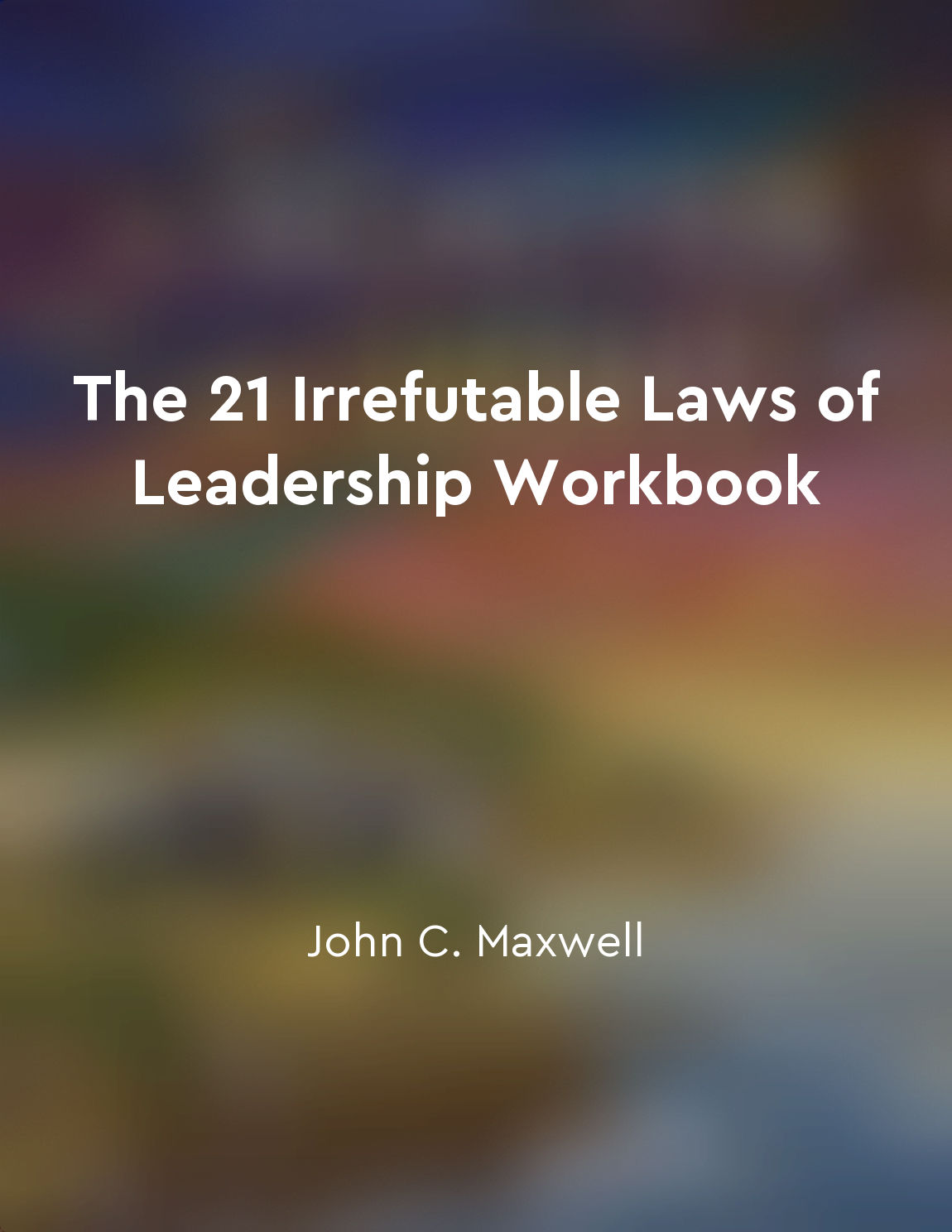The Law of Influence states that influence is the true measure of leadership from "summary" of The 21 Irrefutable Laws of Leadership Workbook by John C. Maxwell
The Law of Influence emphasizes the importance of influence in determining one's leadership capabilities. In essence, leadership is not about titles or positions, but about the ability to influence others. A leader may have a fancy title and a corner office, but if they are unable to influence others, they are not truly leading. Influence is the true measure of leadership because it is what ultimately determines a leader's effectiveness. Influence is not something that can be demanded or commanded; it must be earned. People choose to follow a leader not because they have to, but because they want to. A leader who is able to influence others is someone who has gained the trust and respect of those around them. This trust and respect are not given freely, but must be cultivated through consistent actions and behaviors. Leaders who possess influence have the ability to inspire and motivate others to achieve common goals. They are able to communicate their vision in a way that resonates with others and compels them to take action. Influence is what enables a leader to bring out the best in their team and guide them towards success. Without influence, a leader is merely a manager, someone who directs tasks but does not inspire greatness. Influence is also what sets great leaders apart from the rest. While some may have authority based on their position, true leaders have influence based on their character and integrity. They lead by example, demonstrating the values and principles they expect others to follow. People are naturally drawn to those who exhibit strong moral character and authenticity, making it easier for them to influence others.- The Law of Influence underscores the fact that leadership is not about power or control, but about the ability to positively impact others. Leaders who understand the importance of influence are able to build strong relationships, foster collaboration, and create a culture of trust and respect. By focusing on developing their influence, leaders can unlock their full potential and lead with confidence and effectiveness.


